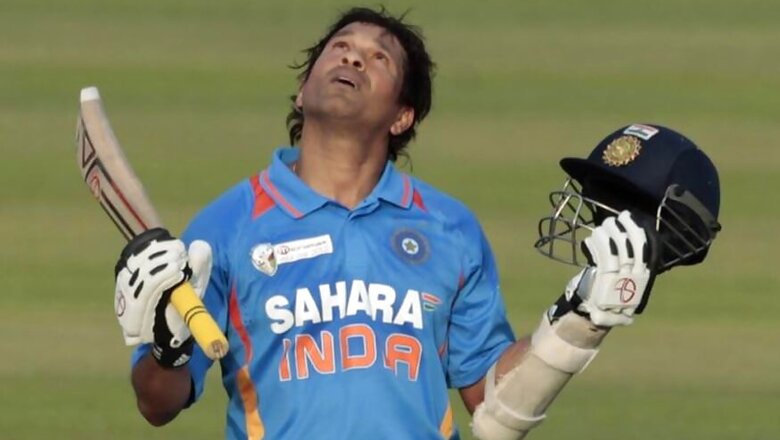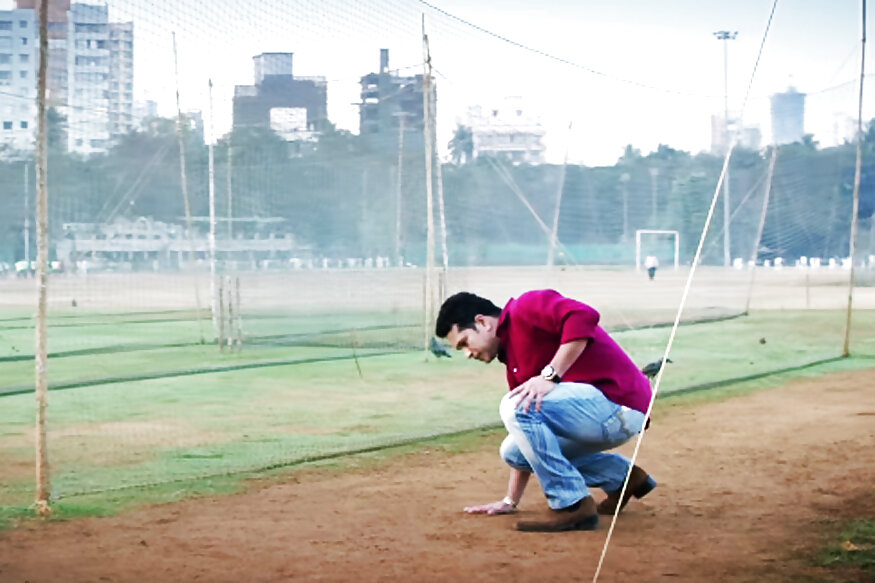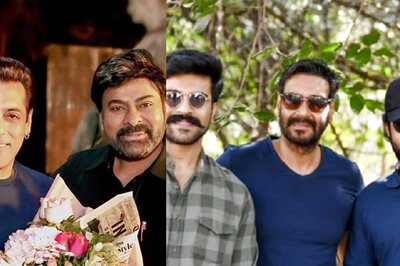
views
Remember the days when Sachin Tendulkar’s batting meant the world to some and ‘Sachin Sachin’ chant defined cricket for the layman? The times when master blaster’s strike meant employees on sick leaves and when his centuries meant unending celebrations? The times when aspiring cricketers only worshiped one name from the fraternity and his on-ground swings defined the fans’ mood?
Sachin: A Billion Dreams takes you on that same nostalgia ride and encapsulates the emotion that Sachin Ramesh Tendulkar truly is. Directed by Emmy-nominated James Erskine, the docudrama spans through his journey from a notorious child to becoming one of the best batsmen of all times. Those who call themselves a true blue fan, wouldn’t find much newness in the documentary – in fact, they’d already know of most of the cricket part they see onscreen. And for the ones who’ve admired Sachin from a distance – the film will be more of an insight into all that went into the making of Sachin, the cricketing world’s living legend.
Considering that Tendulkar’s autobiography was launched in 2014, there isn’t much that’s secret about his life but that a filmmaker, who has helmed a number of well-received sports biopics including those on the life of Billie Jean, Bobby Riggs and Marco Pantani, chose to bring to celluloid the life of Tendulkar, speaks volumes about Tendulkar’s identity at the global platform. As viewers, we should be thanking our stars that this isn’t a quintessential Bollywood film but a biographical drama with Sachin himself pulling the narrative forward – a format Indian film industry hasn’t yet explored to its full potential.

A 10-year-old notorious child sees India lifting its first World Cup trophy in 1983, and 28 years later, the man reaches the highest echelons of International Cricket and lead India to its second World Cup win. His life, in 22 yards for 24 years, is nothing short of a textbook example of what dedication and hard work looks like. From his first match at the age of 16 to his last at 40 – the ups, the downs, the lows and the highs – each facet has been told captivatingly with a series of well-strung real life footages. The first person interviews with the likes of Wasim Akram, Waqar Younis, Harsha Bhogale, Ravi Shastri, Virat Kohli, Harbhajan Singh, MS Dhoni only adds credibility and a certain feel that make you feel like you’re reliving the moment. Like there’s a scene wherein Wasim describes his first thoughts on seeing a 16-year-old on strike and in an attempt to intimidate, he felt, “the only drive you’ll get from here is the one from hotel to the stadium" or the one wherein the new crop of players share their experiences of what Sachin’s batting felt like. Through the running time, you see and grow with him – each milestone of his, reminds you of yours at that point in time and each low point of his takes you on a memory lane of what you went through at that point. Tendulkar, in a way, became a conscious and a collaborative echo of the nation and that subject itself is intriguing enough to keep you invested till the absolute end.
What’s surprising in this film is how beautifully it builds Tendulkar’s relationship with his family members – father Ramesh, mother Rajni, siblings Ajit, Nitin and Savita, wife Anjali and his two children – Sara and Arjun and for that Erskine deserves to be lauded. Each of Tendulkar’s family member has played a role in making him the man and the success that he is – whether it was his brother Ajit, who introduced him to the coach Ramakant Achrekar and convinced him into giving the little boy a second chance who feared out in the first, his father – a silent yet disciplined man who “treated everyone equally" and always motivated Tendulkar to never give up, his mother - who never tired in and inspired her son to always go on, his sister who brought him his first-ever cricket bat as a present from Kashmir or his kids who always kept him grounded. But most importantly, his wife Anjali emerges as the true hero – she stood by him like a rock even in the lowest of times and made sure to do everything in order to lift his spirits up. The first person accounts of Anjali are so heartwarming that you’ll find yourself feeling smiling. Always.
To Erskine’s credits, the choice of visuals has turned out so right that they’re actually the winners in their own might. There are some moments goosebumps-worthy and some to tug you right at the deepest corner of your heart. You’ll see a young Tendulkar catering to media questions, you’ll follow his eventful journey on-field, you’ll see the montages of his old-school wedding, you’ll see him listening to a Bappi Lahiri track on loop, you’ll see him making faces with daughter Sara and working out with son Arjun, you’ll see his parents guiding him, you’ll listen to the green room conversations and of course, you'll see an elated Tendulkar come running on field like a child post the world cup win, you’ll find yourself cheering and lauding when the visuals of old victories flash right back in.
One might have expected the makers to at least touch upon Tendulkar’s take on the infamous match-fixing scandal, but none of it finds its way here. It’s Tendulkar’s tale focusing only and only on what perhaps the cricketer wanted to share with the rest of the world including the testing times and the criticism and pressure that came his and his family's way.
If you’re a Tendulkar worshipper, you were probably sold at the first poster itself. But nevertheless, the docudrama will be a treat for you. It’ll be like a nostalgia ride, one for the good, wherein you’ll find yourself smiling, sighing and sobbing along with Tendulkar.
Rating: 3/5



















Comments
0 comment